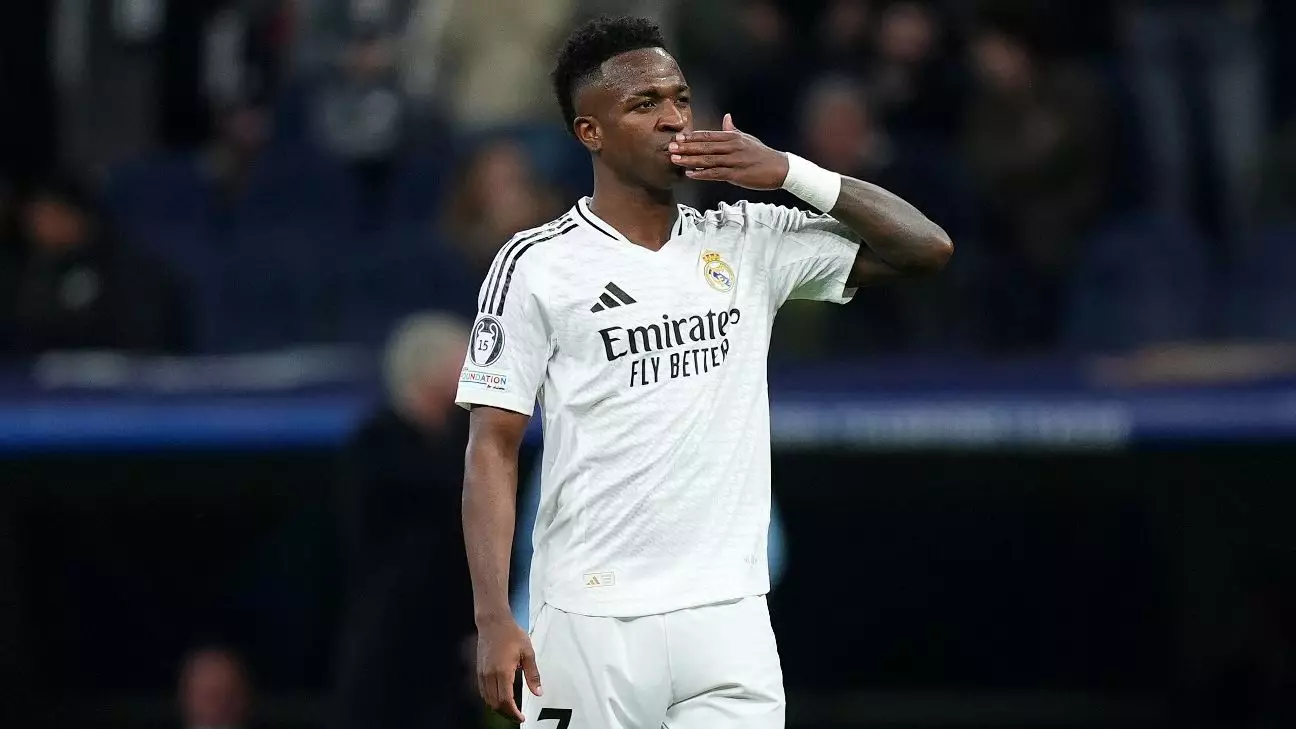In the realm of football, rivalries often spark fierce competition, not just on the pitch but also amongst the fans. This dynamic recently played out during Real Madrid’s high-stakes Champions League clash with Manchester City. As the anticipation built ahead of the first leg at the Etihad Stadium, City supporters unveiled a rather provocative banner. The image featured Rodri, celebrating his recent accolade as the Ballon d’Or winner, coupled with the Oasis lyric “Stop Crying Your Heart Out.” This was not just a harmless jab; it was a calculated move to throw shade at Vinícius Júnior, who had been notably absent from the awards ceremony where Rodri was recognized.
This incident represented more than just fan banter. For Vinícius, it was a reminder of the bitterness surrounding the award snub — he, alongside his Real Madrid colleagues, had chosen to boycott the ceremony in Paris last October. It seemed that City supporters perceived Rodri’s victory as a defining moment, while Vinícius’s omission from the ceremony signified a missed recognition of his extraordinary efforts. However, instead of letting these provocations dampen his spirits, the Brazilian utilized them as motivation. After Real Madrid triumphed with a commendable 3-1 victory over City at the Bernabéu, Vinícius took to social media, sharing a post that echoed victory with a hint of sarcasm: “Okat, okay, okay,” paired with a crying emoji, thus showcasing his ability to turn tables on his critics.
Vinícius’s impact on the match extended far beyond merely responding to fan provocations. His performance reflected a player in peak form, ready to dominate the game. In the first leg at the Etihad, he played an instrumental role, assisting Jude Bellingham to secure a last-minute winner, effectively providing Madrid with a 2-1 advantage heading into the second leg. Such critical contributions are vital for any team intent on success in the Champions League, especially against formidable opponents like Manchester City under the strategic stewardship of Pep Guardiola.
Post-match, Vinícius articulated his mindset following the banner incident. He remarked to Movistar, “I saw it [the banner]. But when opposition fans do things, it always gives me more strength to play a great game, and here I did that.” His reaction underscores a philosophical approach common among elite athletes — utilizing negativity as fuel for their performance. This mindset not only speaks to his resilience but also positions him as a rising star in the footballing landscape, capable of thriving under pressure.
The clash between Real Madrid and Manchester City was not simply about winning a match; it symbolized a larger narrative within the sport involving recognition, rivalry, and the personal journeys of its players. Vinícius Júnior’s response to adversity and his subsequent performance demonstrate that while football may be a physical contest, it is equally a psychological battle. As such, the talented star continues to emerge not just as a fierce competitor but as a figure emblematic of resilience and potential in the beautiful game.

